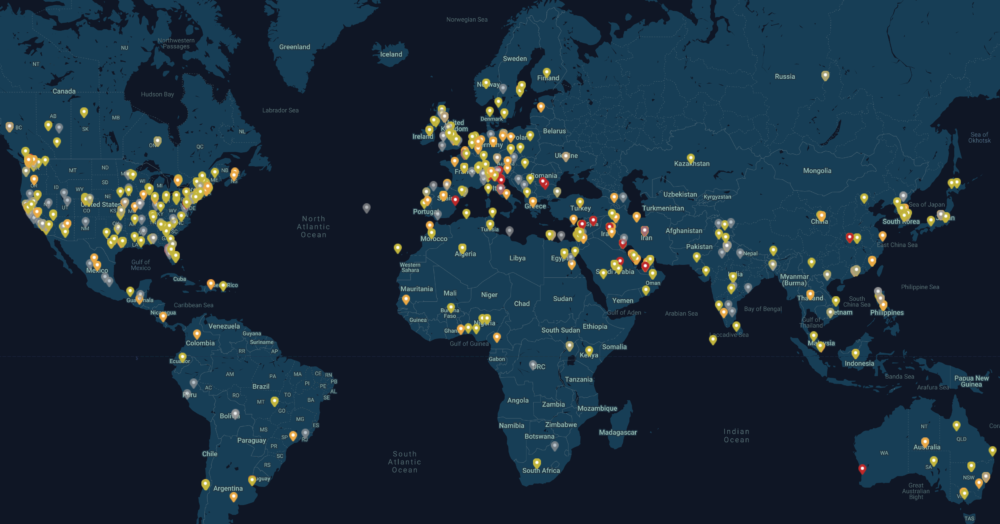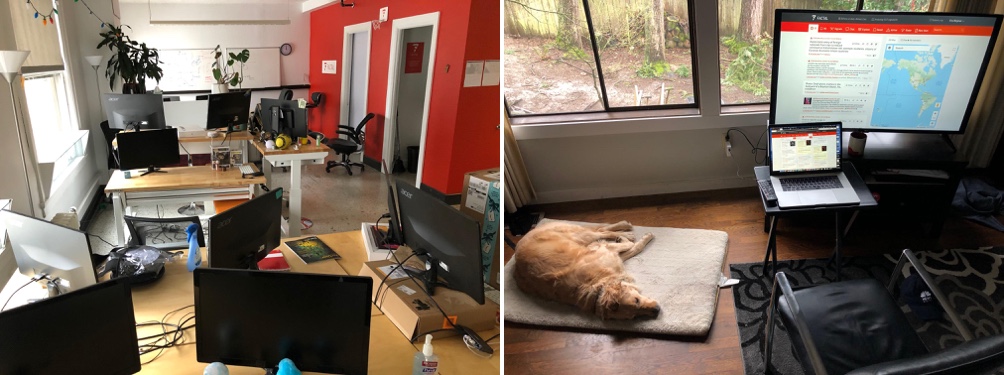Weeks before the virus dominated global headlines, Factal published our first report about a pocket of “viral pneumonia” in Wuhan, China. The seemingly-innocuous report was published on Dec 31st local time. Little did we know, in less than two months the virus would become a global outbreak and take root in our own community of Seattle.
Today the Factal Seattle office stands empty. On the recommendation of health officials, hundreds of thousands of Seattle-area employees are working from home, leaving vast downtown buildings nearly empty. Seattle has become the epicenter of US cases, taking the brunt of the death toll and offering a strange preview of what the rest of the country will see.
With so many global organizations relying on Factal’s breaking news platform around the clock – including the largest disaster response and humanitarian aid organizations in the world, which have free access – we’re fortunate that Factal was already wired for virtual work. We have a London team, several remote employees in other cities and we live in Slack. But a fully-distributed newsroom is a first for us, our laptops and monitors perched in living rooms, kitchens and bedrooms.
By the time the virus had reached Seattle, we had already experienced it vicariously through our coverage of China. Factal editors had posted hundreds of breaking news updates, searching from Weibo, filtering out misinformation and navigating around gaps in government-controlled coverage. We delved into each new case report, using our phone calculators to tally up the new China death toll.
As journalists, we had seen enough to know that COVID-19 was a much more widespread event than H1N1 and SARS. Most of our Seattle team began working from home a week before nearby companies followed suit, and I bought extra hand sanitizer, soap and medication (but left the toilet paper and bottled water behind.)

Now in early March, we’re watching the same Seattle experience begin to play out across the US, as if the rest of the country is running on a two-week delay. Our coverage has accelerated, surpassing 3,000 verified updates across dozens of countries (we’re posting higher-severity updates on Twitter, too). Our internal Slack channels are more active than ever, a fusion of virus developments, warnings about misinformation and photos of dogs and cats.
As a breaking news organization obsessed with the facts, we’re professional skeptics when it comes to speculative information both on the internet and in our own neighborhoods. We know it’s going to get worse before it gets better, but we’re optimistic about the future and proud to call Seattle home.
If this is the first time you’ve heard about Factal, we’re an enterprise breaking news service that blends real-time verification with geolocation, alerting and collaboration features for global organizations. Factal was created by the founders of BreakingNews.com, the popular free breaking news service that was discontinued by NBC News in 2016. You can contact me at cory@factal.com.
(We’ve corrected this story to update the local date and time zone of our first Wuhan update to Dec 31st China Standard Time.)

